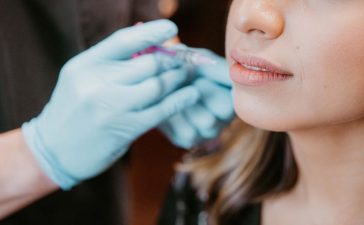Smart devices are no longer just about convenience—they’re transforming the way we approach healthcare. With innovations ranging from wearables that monitor vital signs to AI-driven home monitoring systems, these technologies have the potential to improve our well-being significantly. Understanding these advancements and their health benefits is crucial for everyone, especially health enthusiasts and patient care practitioners.
Understanding Smart Devices
What Are Smart Devices in Healthcare?
Smart devices in healthcare refer to electronic gadgets designed to monitor, diagnose, and treat various health conditions. These devices are equipped with sensors, connectivity, and software that allow them to collect and analyze data. They can range from simple fitness trackers to complex AI-driven diagnostic tools.
How Do Smart Devices Integrate with Healthcare?
Integration of smart devices into healthcare has been a game changer. These devices sync with mobile apps and cloud platforms, providing real-time data to both users and healthcare professionals. This seamless integration allows for continuous monitoring, timely interventions, and personalized healthcare plans.
The Technology Behind Smart Devices
The core technology includes sensors for data collection, connectivity for data transmission, and machine learning algorithms for data analysis. Advanced smart devices also feature AI capabilities, enabling them to predict health issues and recommend preventive measures.
Health Benefits of Smart Devices
Monitoring and Managing Chronic Conditions
One of the most significant benefits of smart devices is their ability to monitor chronic conditions like diabetes, hypertension, and asthma. Continuous glucose monitors, for instance, provide real-time blood sugar levels, helping diabetics manage their condition more effectively. Similarly, smart inhalers track usage patterns for asthma patients, ensuring they adhere to their treatment plans.
Promoting Healthy Lifestyles
Fitness trackers and smartwatches are excellent tools for promoting healthy lifestyles. These devices monitor physical activity, sleep patterns, and even stress levels. They provide personalized advice and reminders, encouraging users to stay active and make healthier choices. The integration of diet tracking features also helps in maintaining a balanced diet.
Enhancing Patient Care and Engagement
Smart devices improve patient care by offering real-time data and facilitating better communication between patients and healthcare providers. Telehealth platforms, integrated with smart devices, allow for remote consultations and continuous monitoring, making healthcare more accessible and engaging for patients.

Notable Innovations in Smart Devices
Breakthroughs in Wearable Technology
Wearable technology has seen remarkable advancements. From smartwatches that can perform ECGs to fitness bands that monitor blood oxygen levels, the range of functionalities is expanding. These devices are becoming more accurate, versatile, and user-friendly, making them indispensable tools for health monitoring.
Advances in Home Monitoring Systems
Home monitoring systems are revolutionizing patient care. Devices like smart scales, blood pressure monitors, and pulse oximeters can now be connected to mobile apps and healthcare platforms. These systems provide continuous monitoring and alert healthcare providers in case of any irregularities, enabling timely interventions.
Integration of AI and Machine Learning
The integration of AI and machine learning in healthcare devices is paving the way for predictive analytics and personalized treatment plans. AI algorithms analyze data collected by smart devices to predict potential health issues and suggest preventive measures. This innovation is particularly beneficial in managing chronic conditions and improving overall health outcomes.
The Educational Aspect
Importance of Educating Users
Education plays a crucial role in the effective use of smart devices. Understanding how to operate these devices, interpret the data, and integrate the insights into daily routines is essential for maximizing their benefits. User guides, tutorials, and customer support services are vital in this regard.
Choosing the Right Smart Device
With so many options available, choosing the right smart device can be overwhelming. It’s important to consider factors like the specific health needs, ease of use, accuracy, and compatibility with other devices. Reading reviews, consulting healthcare providers, and participating in online forums can help make an informed decision.
Case Studies and User Testimonials
Real-Life Examples
Consider Jane, a 45-year-old diabetic who struggled with managing her blood sugar levels. After using a continuous glucose monitor, she was able to keep her levels in check and significantly reduce her risk of complications. Another example is Mark, a fitness enthusiast who used a smartwatch to track his workouts and optimize his training regimen, leading to improved performance and overall health.
Insights from Healthcare Professionals
Dr. Emily Thompson, a renowned cardiologist, emphasizes the importance of smart devices in patient care. According to her, “Smart devices provide invaluable data that helps us understand patients’ conditions better and tailor treatments accordingly. They also empower patients to take charge of their health.”
Conclusion
Smart devices are revolutionizing healthcare by offering innovative solutions for monitoring, diagnosis, and treatment. They provide numerous health benefits, including better management of chronic conditions, promotion of healthy lifestyles, and enhanced patient care. Understanding these technologies and their applications is essential for anyone looking to improve their health.
Stay informed, make the best use of these devices, and join the community of health enthusiasts benefiting from these advancements. Share this article with your friends and family, and feel free to engage in the comments section below. Let’s make health a priority together!
















